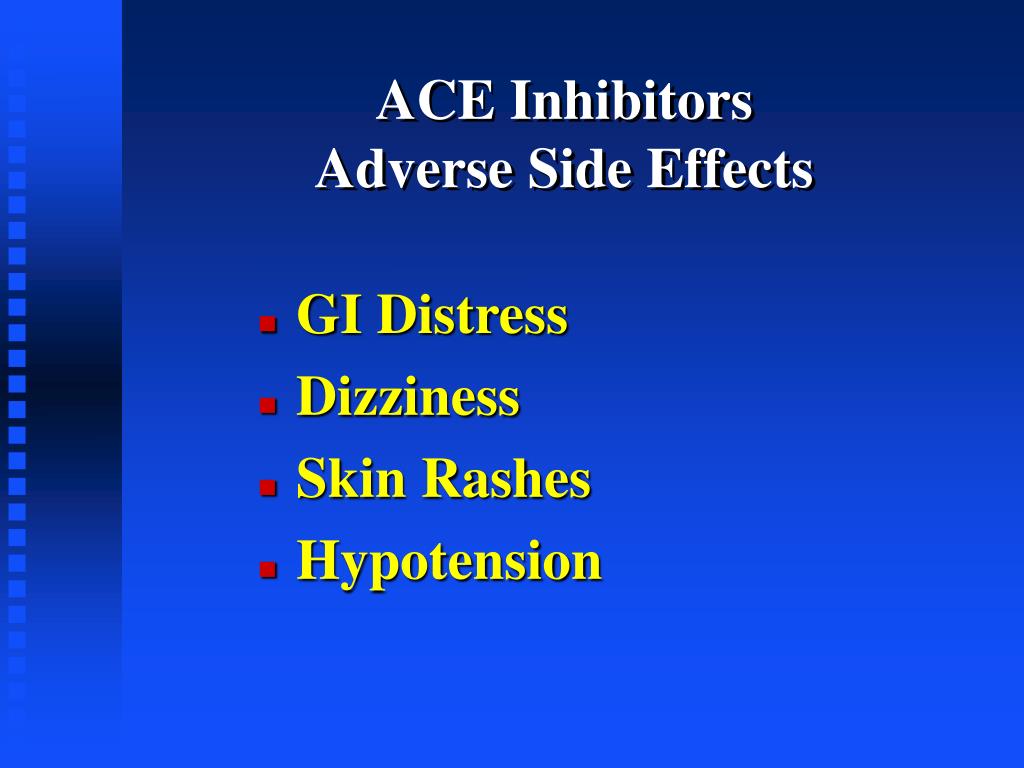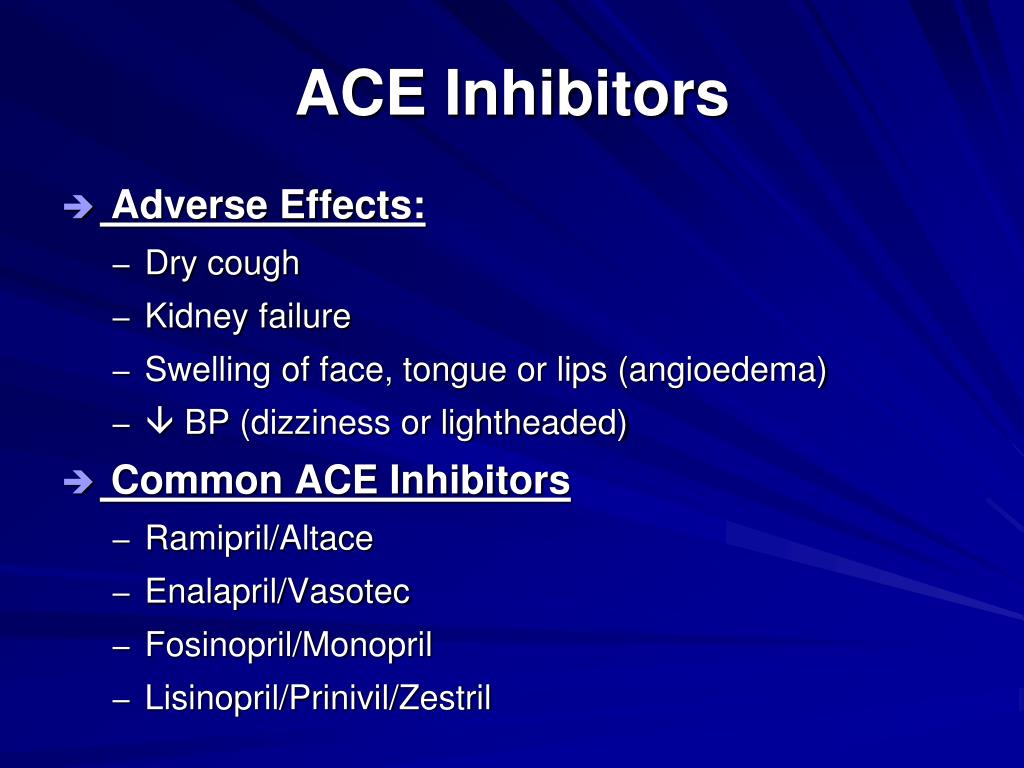

If you’re interested in no longer taking your ACE inhibitor, talk to your healthcare provider first. Don’t stop taking an ACE inhibitor without talking to your healthcare provider In that case, an ACE inhibitor that comes as an oral liquid, like lisinopril and enalapril, may be best. Or maybe you have trouble swallowing pills. If you prefer to only take one dose per day, lisinopril or benazepril may be a good option. When deciding which ACE inhibitor to prescribe you, your healthcare provider may consider factors like how many doses you’re willing to take per day. Medications in this class are generally considered equivalent. But being more well-researched doesn’t necessarily make one ACE inhibitor preferable over another. Some ACE inhibitors have been studied more than others. The best ACE inhibitor for you depends on why you need it, your medical history, and other personal factors. In general, one ACE inhibitor isn’t better than another. ACE inhibitors are usually considered equally effective Other ACE inhibitors aren’t typically affected by food and can be taken without regard to meals. Taking captopril with food can decrease its absorption and cause it not to work as well.

For example, captopril should be taken on an empty stomach 1 to 2 hours before a meal.
#Side effect of ace inhibitors how to
If you’re prescribed an ACE inhibitor, make sure you closely follow the instructions on how to take it. Other ACE inhibitors, such as benazepril and enalapril, are taken 1 to 2 times a day. Lisinopril is usually only taken once daily. For example, captopril is usually taken 2 to 3 times a day because it leaves the body more quickly than other ACE inhibitors, such as lisinopril. This is because some ACE inhibitors don’t last as long in the body as others. But some are taken once a day while others may be taken as often as 3 times a day.

Not all ACE inhibitors are taken the same way Although other ACE inhibitors aren’t FDA approved for this reason, they’re still effective. For example, captopril is an ACE inhibitor that’s approved to treat diabetic nephropathy. It’s common to prescribe a medication for off-label use when it is known to work similarly to a medication that is FDA approved to treat a condition. But even if an ACE inhibitor isn’t FDA approved for a particular condition, it might still be prescribed “ off-label.” This is when a medication is prescribed for a purpose that isn’t FDA approved. Kidney problems: ACE inhibitors are first-choice options to treat kidney problems caused by diabetes (diabetic nephropathy).Īs mentioned, not all ACE inhibitors are approved to treat conditions other than hypertension. To reduce the risk of heart attack, stroke, or death related to a cardiac event: ACE inhibitors can reduce the risk of these health events in people who have certain health conditions - like diabetes, high blood pressure, or high cholesterol. Heart failure: When taken in combination with other medications, ACE inhibitors can reduce the risk of death from heart failure for some people.Īfter a heart attack: ACE inhibitors can reduce the risk of death in people who’ve recently had a heart attack. But some ACE inhibitors are also approved for other reasons, including: ACE inhibitors treat more than just high blood pressureĪCE inhibitors are FDA approved to treat hypertension. Here, we’ll cover eight important facts you should know if you take one of these medications or another ACE inhibitor. Some examples include lisinopril (Zestril), enalapril (Vasotec), and benazepril (Lotensin). The generic names of all oral ACE inhibitors end in “-il,” making them easy to recognize. Lowering angiotensin II levels helps relax the blood vessels to lower blood pressure. More specifically, they prevent the formation of angiotensin II.Īngiotensin II is a protein that causes blood vessels to constrict (tighten), which can cause high blood pressure and other health problems. ACE inhibitors work by targeting the body’s renin-angiotensin-aldosterone (RAAS) system. Angiotensin-converting enzyme (ACE) inhibitors are medications that treat high blood pressure (hypertension) and other medical conditions.


 0 kommentar(er)
0 kommentar(er)
